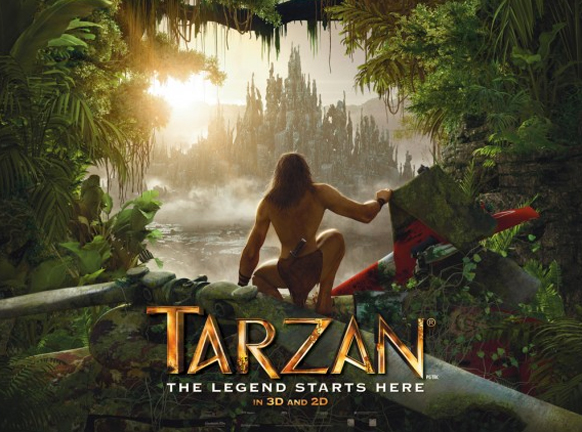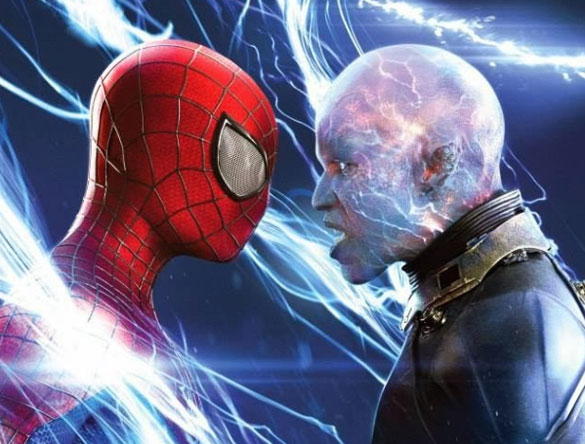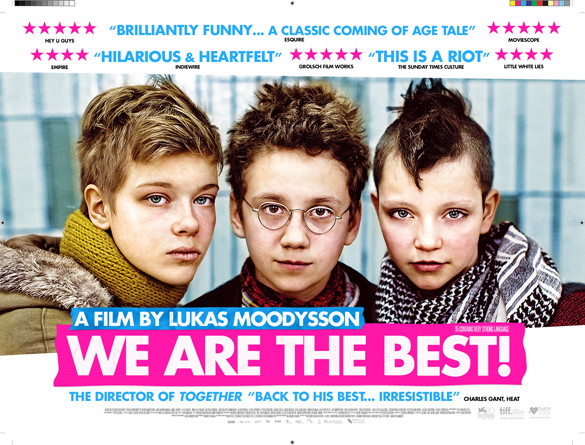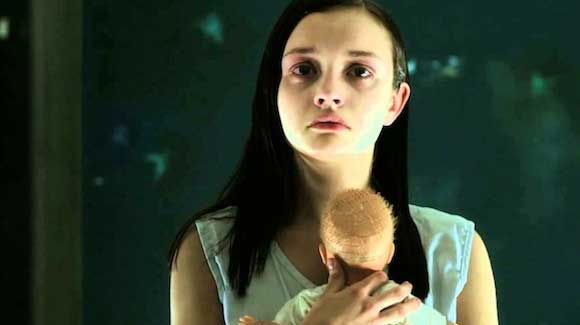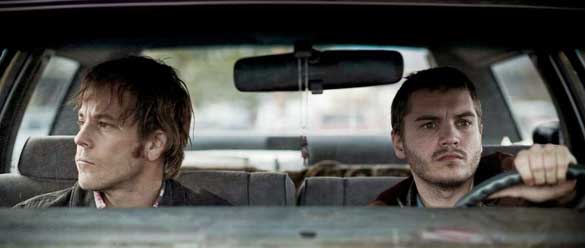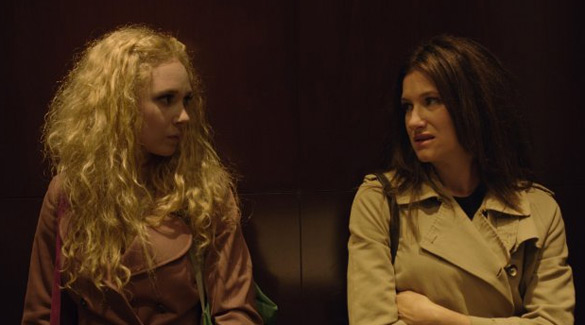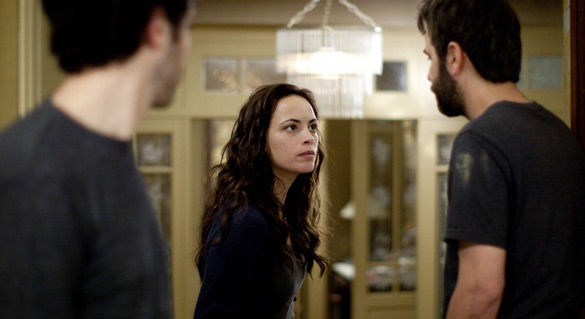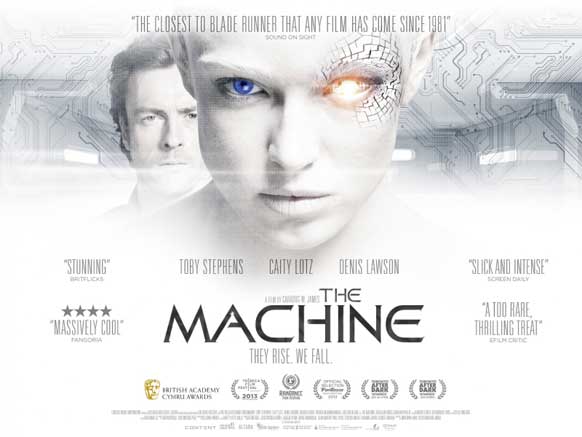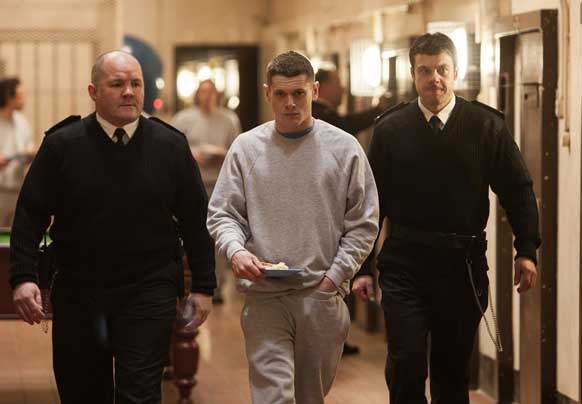Tarzan 3D **
‘The King of the Jungle’ and his man-ape antics are not deemed enough to keep the 2014 kid engaged, it seems. Well, that appears to be the case, with German company Constantin Films’ new take of Tarzan – all in 3D. For those who know the Edgar Rice Burroughs’ character, this animated Tarzan becomes emerged in an Avatar/Superman/Kingdom of the Crystal Skull/Jurassic Park/environmental campaign. Let’s just say he has more to contend with IN the jungle than Crocodile Dundee ever did out of it.
The story is pretty much the same; this time though, we get a bit of back-story into the boy who grows to become the ‘ape man’. Derek lives with his explorer/scientist father – and wealthy CEO of Greystoke Energies – and mother in the depths of the jungle until one day, the family decide to travel back home part of the way by helicopter. On the way, they make a cursed detour that will prove fatal for some.
Derek wakes to find himself alone in the jungle and gets ‘adopted’ by a female gorilla mourning a personal loss, as well as some of the rest of the primate group. Derek grows into Tarzan (voiced by Twilight’s Kellan Lutz). His simple life is eventually turned upside down by the arrival of the beautiful Jane Porter (voiced by Spencer Locke) and the current, unscrupulous CEO of his father’s old corporation, hell-bent on exploiting the natural and curiously strange resources. Tarzan must save Jane and the jungle life.
Not only is there a sinister nature to the facial animation of writer-director Reinhard Klooss’ Tarzan, but also, it’s clear – after you’ve adjusted to the 3D specs – this is a dubbed film from German to English when you concentrate on the characters’ speech in particular. In the current climate of perfectly formed Pixar films, this is a little too obvious and frankly unforgivable. The only saving grace is the immense detail of the surroundings that is awe-inspiring and really submerges you into the lush habitat. Hence, you feel Tarzan’s determination to save it.
There are some beautifully realised ape scenes that show Klooss and co have done their wildlife homework well, and studied the nature of primates in their environment – and not afraid to tackle serious subjects like death. Parents do not fear; it is done with kids in mind though, but there may be some explaining to do afterwards, more out of young curiosity.
The biggest issue this film has is it’s rammed with so many concepts, complete with a bizarre sci-fi angle that just feels ‘desperate’ on the creators’ part, as if kids would bored easily with just vine-swinging action. It seems to borrow a lot from other films too, so much so, it becomes very samey. By the time the kids hear the famous Tarzan call, they either a) have not registered it, or b) have no idea of the significance of this for this historic fictional character. That feels like a great waste – even after explaining the significance to unmoved, accompanying youngsters before the film began.
Tarzan 3D thus feels like a frustrating introduction for kids today, purely because Tarzan’s got too much on his plate in the story, distracting from our focus on him as an intriguing character. The love story alone would have been more powerful with maybe the ‘save the natural resources of our planet’ angle. But really, Tarzan in a sci-fi film? Still, here’s betting no one thought Indiana Jones would get entangled with aliens in Kingdom of the Crystal Skull so anything’s possible with access to special effects, however bonkers.
2/5 stars
By @FilmGazer

